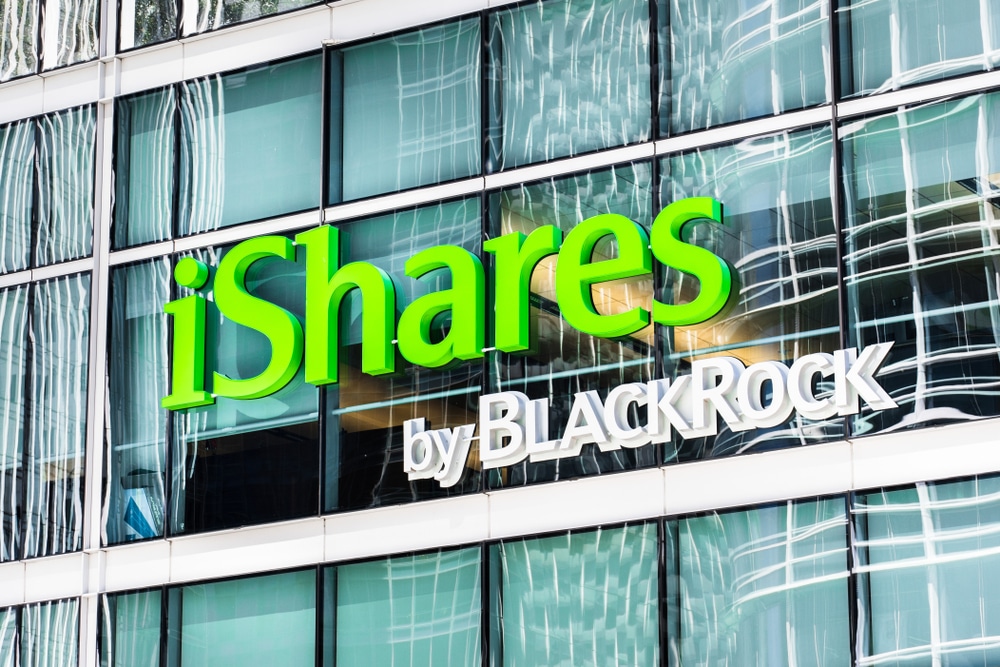
BlackRock Shifts Risk to Crypto Market Makers to Ease Bank’s Participation
A review of a memo by the US Securities and Exchange Commission (SEC) discloses details of the meeting with BlackRock. The meeting in late November aimed to discuss the asset management firm’s application for a Bitcoin exchange-traded fund (ETF).
The Lary Fink-led BlackRock disclosed its intention to ease the Wall Street banks’ participation in the Bitcoin ETF upon its approval by the SEC. In particular, the global largest asset manager indicated it would shift risk to the digital asset market makers.
SEC Reviews BlackRock’ Roadmap for ETF Redemption
The SEC memo discloses the roadmap formulated by BlackRock and outlines the mechanism to redeem its ETF. The meeting drew participants from BlackRock, Commission, and Nasdaq interested in discussing the feedback on the pending Bitcoin ETF application.
The memo detailed that the applicants believedbelieve that Bitcoin would facilitate the investors participating in the fund to derive exposure to Bitcoin without requiring direct acquisition and asset storage.
BlackRock is joined by another 11 applicants seeking the ETF that has eluded the US investors for over a decade. Fink’s firm is among the asset managers predicting that the spot Bitcoin approval would trigger large capital inflow into the digital assets markets.
In the past, the Gary Gensler-led SEC has expressed reluctance to approve the ETF, citing concerns of potential manipulation of Bitcoin prices. The SEC is yet to decide on the pending BlackRock’s iShares Bitcoin Trust (IBTC) application.
Understanding T+ Settlement Model
Market makers suggest that the SEC has until mid-January, though analysts predict the securities regulator will likely decide on a handful of the applications earlier. The analysts predict January 8-10 as the most likely dates for the Bitcoin ETF approval.
The BlackRock-SEC-Nasdaq meeting involved a subsequent stage following the November 20 meeting when the securities regulator questioned BlackRock’s proposed model for redeeming shares.
The previous proposal fronted a T+1 settlement model that starts with the broker-dealer presenting the IBTC shares to the transfer agent. The issue is that the custodian, identified as Coinbase Custody, should then transmit the Bitcoin backing the shares to the crypto market maker. The latter closes the short position in the Bitcoins involved.
The T represents the date of placing the order. The T redemption flow implies order settlement on the day of its placement. As such, a T+1 redemption is settled a day after its placement.
The BlackRock redemption process would mirror traditional finance, where eligible orders for settlement are only possible when markets remain open. It implies that weekends would not count, and those placed on Friday are settled on Monday.
The T+1 flow proposal is timely since it aligns with the new rules unveiled by the SEC mandating single-business day settlement for stock and ETF starting May 2024.
The settlement flow proposed by BlackRock implies that redemption orders would be initiated with digital assets market makers remitting the cash to the broker-dealer. It prompts the settlement kick-off before involving authorized participants – mainly Wall Street banks.
The revised model proposed by Bitcoin aligns with the cash redemption model while overcoming unnecessary challenges associated with the in-kind settlement approach.
BlackRock was noncommittal on how the new flow offers enhanced resistance to market manipulation. Such capability would resolve the SEC’s primary concern when dismissing the spot Bitcoin ETF applications.
BlackRock Revised Flow Eradicates Risk for Wall Street Banks
The asset manager hailed the revised flow approach as fundamentally nurturing simplicity and harmonization across the ETF ecosystem.
Most financial institutions often seek third-party firms to custody their digital assets on clients’ behalf. That compels the institutions to start their redemption flow with BTC by first engaging the outside custodian.
The revised redemption model by BlackRock is set to expedite the process for large institutions involved in managing billion-dollar assets. The process is less risky, guaranteeing a smooth inflow of institutional dollars into the Bitcoin ETF.
Editorial credit: Sundry Photography / Shutterstock.com




